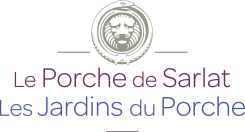
Duck foie gras from the Périgord
Both goose and duck foie gras from the Périgord are amongst the jewels in the crown of France’s culinary tradition. The raising and force-feeding of geese and ducks is a centuries-old practice in the Périgord. Every February, Sarlat, the capital of Périgord Noir, offers the star-billing so richly deserved by geese and ducks in the shape of the Foie Gras festival, Fest’Oie. Périgord foie gras is protected by two quality schemes, the Protected Geographical Indication label (IGP) and ‘Origine Certifié Périgord’. These two labels are the guarantee that foie gras and its associated products (whole foie gras, pieces of foie gras, reconstituted foie gras, duck confit, smoked or dried fillet of duck breast) have come from ducks that have been raised and fattened in the Périgord region.
Périgord black truffles
The Périgord black truffle is one of the most-prized ingredients in Périgord haute cuisine. With its distinctive aromas (‘forest-floor’, earthiness and roasted dried fruits), it’s a highly-sophisticated product which will really lift any number of dishes and add flavour to cooking juices and sauces. The Périgord truffle is a highly-scented ingredient that plays a key part in French haute cuisine. Indeed, its fame has long since spread beyond the borders of France. Truffles are gathered as soon as the first frosts hit in November and the season continues until the end of February. Sarlat celebrates the truffle every year on the third weekend of January – a major market is held, with lots of special activities and events. Fresh truffles are on display, as well as truffle-based products and other related products. Cookery classes are also held to give beginners a chance to learn how to cook with truffles.


Sarlat potatoes
Strasbourg celebrates the sausage that bears its name, Bayonne its eponymous ham. Sarlat, meanwhile, has annual celebrations of its culinary gems – truffle and foie gras – but there’s more… Sarlat also celebrates the local potato (Pomme de Terre Sarladaise) every year on a Sunday during the month of September, during the Journée du Goût et de la Gastronomie de Sarlat, a local festival celebrating the town’s culinary heritage. Make sure you put this date in your travel diary and come and find out more about the art of preparing and cooking Sarladaise potatoes. Everyone has their favourite way of serving up Sarladaise spuds, from devotees of potatoes with boletus mushrooms, potatoes with truffles, potatoes cooked in duck fat, goose fat or lard; grilled or steamed, pan-fried, cooked in a casserole or in the oven…whatever gets your taste-buds tingling!
Périgord walnuts
The Dordogne River used to be called ‘La rivière espérance’ (the Hope river). It’s also part of the ‘Route de la Noix’ (the Walnut Road), a whole region where the production of walnuts takes pride of place on the local food scene. Périgord walnuts have been awarded both AOC and AOP certification. In and around the Sarlat area there are many walnut growers who tend their orchards using the most environmentally-friendly approach possible. A tour of this area makes for something a little different but it’s definitely a visit worth making. It’s an opportunity to find out more about the age-old methods used to process walnuts and to produce a whole range of products associated with them: walnut kernels, walnut oil, caramelized kernels, walnut spread, green walnut liqueur and more. You can also go on an orchard tour, which includes seeing washing, shelling and packaging machinery at work, as well as the processing of the raw material. Walnuts are picked when they are ripe, which happens from mid-September onwards.


Bergerac wines
Although it’s well known for its history, tourist attractions and cultural heritage, the Dordogne is also an area that’s famous for the wide variety of wines in the Bergerac wine-growing region. Bergerac wines are protected by no fewer than different 13 AOC certifications: Bergerac, Bergerac sec, Bergerac rosé, Côtes-de-bergerac (red), Côtes-de-Bergerac (white), Monbazillac, Monbazillac ‘sélection de grains nobles’ (wine made from grapes affected by noble rot), Pécharmant, Montravel, Haut-montravel, Côtes-de Montravel, Saussignac and Rosette. When you come to stay in Sarlat, you really must experience a wine tour, complete with tasting session – either by visiting the vineyards themselves or trying out wines at the wine-growers’ stalls at the local market in Sarlat. Whether you prefer an elegant white Bergerac, an aromatic rosé or a heady red, you’ll definitely be won over by the best that local wine tourism has to offer!
